Newfoundland Dog Breed Information: A Comprehensive Guide
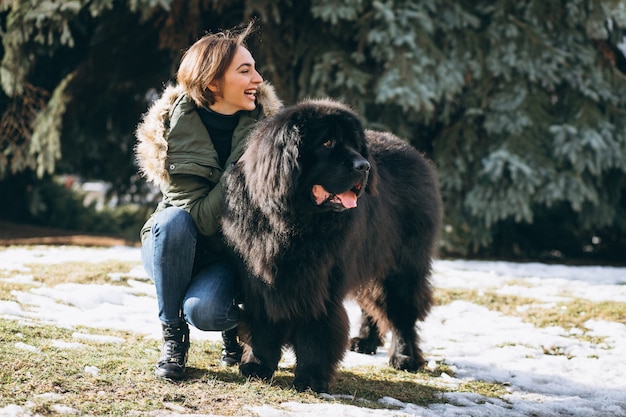
Thinking about welcoming a Newfoundland into your life? These magnificent dogs are known for their gentle nature and unwavering loyalty, but owning one is a significant commitment. This comprehensive guide will delve into every aspect of Newfoundland ownership, helping you determine if this breed is the right fit for you.
Newfoundlands, often affectionately called "Newfies," are instantly recognizable by their impressive size and gentle demeanor. They're renowned for their sweet temperament and unwavering loyalty. Their calm and patient nature makes them exceptional family companions, particularly tolerant and playful with children. However, their sheer size necessitates a home with ample space, both indoors and outdoors, and a family capable of handling their considerable strength. They're not ideal for apartment living or inexperienced dog owners.
| Trait | Description |
|---|---|
| Temperament | Sweet, gentle, loyal, patient, playful, protective |
| Energy Level | Moderate to high; require daily exercise but not excessively demanding |
| Trainability | Intelligent and eager to please, but require consistent, positive reinforcement training |
| Good with Kids | Yes, known for patience and gentleness with children, but supervision is always recommended. |
| Good with Other Pets | Generally good, but early socialization is crucial. |
Newfoundland Dog Breed Information: Lifespan and Common Health Concerns
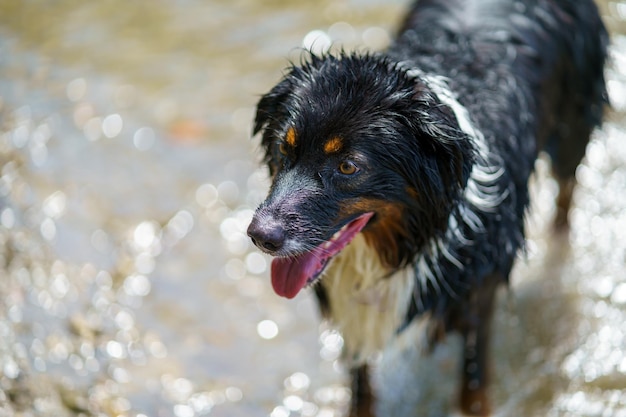
Newfoundlands typically have a lifespan of 8 to 12 years, although some may live longer with proper care. Unfortunately, their size predisposes them to certain health issues. Hip and elbow dysplasia are common, leading to joint pain and lameness. Dilated cardiomyopathy (DCM), a serious heart condition, is another concern. Bloat (gastric torsion), a life-threatening condition where the stomach twists, is a significant risk, requiring prompt veterinary attention. Cancer is also a relatively common cause of death in the breed. Regular veterinary check-ups, including cardiac screenings and orthopedic assessments, are essential for early detection and management of these conditions.
Choosing a reputable breeder who conducts thorough health testing on their breeding dogs is crucial in mitigating the risk of these hereditary conditions. Responsible breeding practices significantly improve the overall health and longevity of Newfoundland puppies.
| Health Concern | Description | Prevention/Management |
|---|---|---|
| Hip & Elbow Dysplasia | Joint problems causing lameness and pain | Responsible breeding, appropriate exercise, weight management |
| Dilated Cardiomyopathy (DCM) | Serious heart condition | Regular veterinary check-ups, including cardiac screenings |
| Bloat (Gastric Torsion) | Life-threatening stomach twisting | Feeding smaller, more frequent meals, avoiding strenuous exercise after eating |
| Cancer | Various types of cancer | Regular veterinary check-ups, early detection |
Newfoundland Dog Breed Information: Exercise and Activity Needs
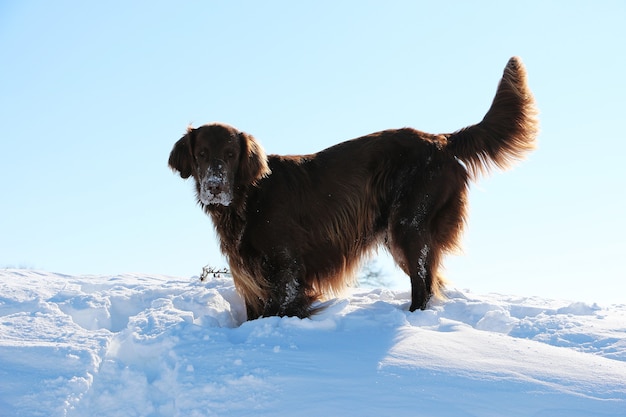
While not overly energetic, Newfoundlands require daily exercise to maintain their physical and mental well-being. A combination of moderate-intensity activities is ideal. Long, leisurely walks are essential, allowing them to explore their surroundings and engage their senses. They are exceptional swimmers and thrive in water, so access to a safe swimming area, like a lake or pool, is a fantastic enrichment opportunity. Fetch, gentle tug-of-war, and other interactive games are also beneficial for both physical and mental stimulation. However, it’s vital to avoid overexertion, especially in hot and humid weather, given their thick double coat.
Remember, their size demands appropriate space. A securely fenced yard is essential to ensure their safety and prevent them from wandering off. Over-exertion can significantly increase the risk of health problems, including joint issues and heatstroke.
| Exercise Type | Frequency | Considerations |
|---|---|---|
| Long Walks | Daily | Adapt the distance and pace to the dog's age and fitness level. |
| Swimming | Several times a week (weather permitting) | Ensure a safe and supervised environment. |
| Fetch/Interactive Games | Regularly | Avoid overexertion, especially in hot weather. |
Newfoundland Dog Breed Information: Grooming Requirements
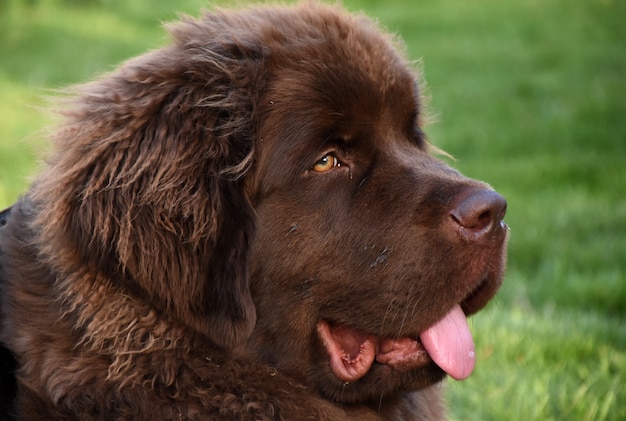
Newfoundlands boast a thick, dense double coat requiring significant grooming. Daily brushing is crucial to prevent matting and remove loose undercoat, particularly during shedding seasons (spring and autumn). Thorough brushing helps maintain the coat’s health and prevent skin issues. Bathing is necessary every few months or as needed, using a dog-specific shampoo and conditioner designed for their coat type. Regular nail trimming, ear cleaning, and dental hygiene are equally important aspects of their grooming routine.
Shedding is a significant factor with Newfoundlands. Be prepared for a considerable amount of hair throughout the house, especially during shedding seasons. Regular grooming can help minimize the amount of shedding, but it will always be substantial.
| Grooming Task | Frequency | Tools/Products |
|---|---|---|
| Brushing | Daily | Slicker brush, undercoat rake |
| Bathing | Every few months | Dog-specific shampoo and conditioner |
| Nail Trimming | Monthly or as needed | Dog nail clippers |
| Ear Cleaning | Weekly or as needed | Dog ear cleaner |
| Dental Hygiene | Daily | Dog toothbrush and toothpaste |
Newfoundland Dog Breed Information: Cost of Ownership

Owning a Newfoundland involves substantial financial responsibility. The initial cost of purchasing a puppy from a reputable breeder can be significant. Ongoing expenses include high-quality dog food (they consume large quantities!), routine veterinary care (including vaccinations, preventative medications, and potential health issues), grooming supplies, toys, and training classes. Unexpected veterinary emergencies can also lead to substantial expenses.
Careful budgeting is vital before bringing a Newfoundland home. Consider all potential costs, including food, vet bills, grooming, training, and potential emergency expenses. Ensure you can comfortably afford these costs throughout the dog's lifespan.
| Cost Category | Approximate Yearly Cost (GBP, Variable) |
|---|---|
| Food | ??500 - ??1500+ |
| Veterinary Care | ??200 - ??1000+ |
| Grooming Supplies | ??50 - ??200+ |
| Toys & Accessories | ??50 - ??150+ |
| Training Classes | ??100 - ??500+ |
Newfoundland Dog Breed Information: Are They Suitable Family Pets?
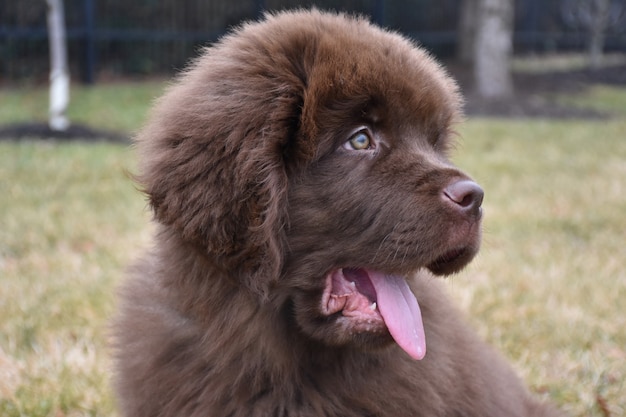
Newfoundlands, with their gentle and patient nature, are often considered ideal family dogs. Their love for children and playful personalities make them wonderful companions. However, their size and strength require careful consideration. Supervision is always recommended when children are interacting with a Newfoundland, especially younger children. Early socialization is vital to ensure they interact appropriately with people and other animals.
A large, secure living space is crucial. Their size means they need room to move comfortably and safely. Sufficient space for exercise is essential. While generally good-natured, their size can be intimidating to other pets, meaning early and careful introductions are critical.
| Family Suitability Factor | Considerations |
|---|---|
| Space | Requires a large home with a securely fenced yard. |
| Children | Patient and good with children, but supervision is essential. |
| Other Pets | Can be good with other pets, but early and gradual introductions are vital. |
| Lifestyle | Requires a family who can dedicate time to exercise, training, and grooming. |
Newfoundland Dog Breed Information: Coat Colours and Variations
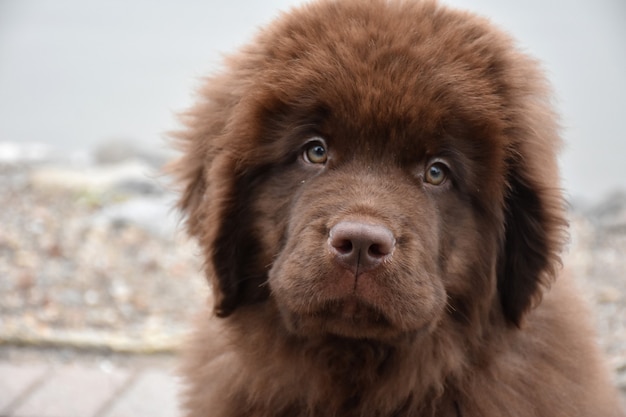
Newfoundlands typically present in a range of beautiful colours. The most common is black, followed by brown (often referred to as liver) and grey. Slight variations in shading within these colours can occur, but these three are the predominant coat colours. A small amount of white marking on the chest is sometimes seen, but extensive white markings are not considered typical of the breed standard.
| Coat Colour | Prevalence |
|---|---|
| Black | Most Common |
| Brown (Liver) | Common |
| Grey | Less Common |
Newfoundland Dog Breed Information: Finding a Responsible Breeder
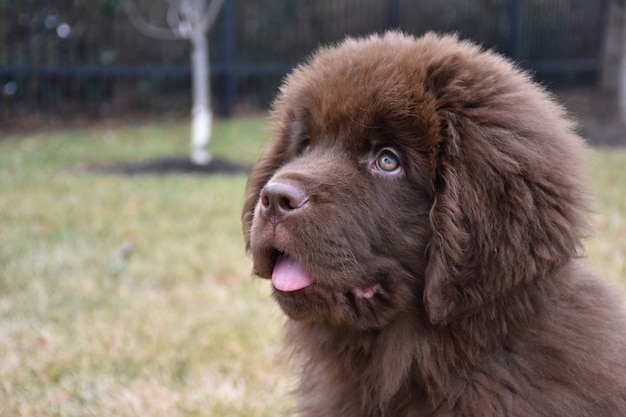
Choosing a responsible breeder is paramount. A reputable breeder will prioritize the health and well-being of their dogs, conducting thorough health testing to screen for genetic diseases. They will be open and transparent, providing detailed information about the puppies' lineage, health history, and temperament. They'll also be happy to answer your questions and allow you to meet the parents of the puppies. Visiting the breeding facility to assess the living conditions of the dogs is crucial. Be wary of breeders who are secretive, pressure you into a quick sale, or have numerous litters available.
Avoid puppy mills and backyard breeders at all costs. These operations often prioritize profit over the welfare of the dogs, leading to unhealthy and poorly socialized puppies.
| Sign of a Reputable Breeder | Sign of an Irresponsible Breeder |
|---|---|
| Health testing of breeding dogs | No health testing or limited information provided |
| Open and honest communication | Unwilling to answer questions or provide information |
| Clean and well-maintained breeding facility | Overcrowded and unsanitary conditions |
| Focus on temperament and socialization | Limited or no socialization of puppies |
Newfoundland Dog Breed Information: Training and Behavioral Considerations
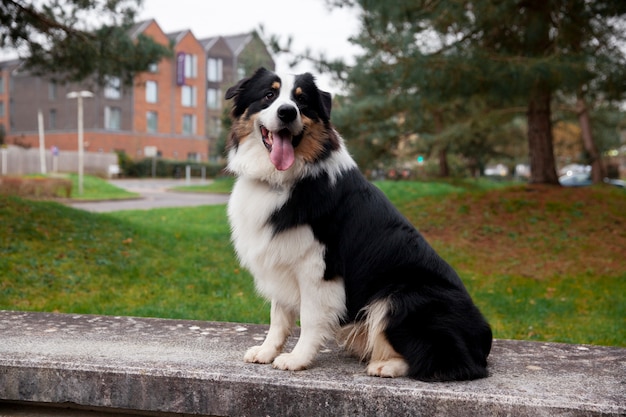
Newfoundlands are intelligent and eager-to-please dogs, but their size and strength demand consistent and positive reinforcement training from a young age. Early socialization is critical to ensure they develop into well-adjusted adults. Start training early, focusing on basic obedience commands like sit, stay, come, and down. Consistency and patience are key, as they can be somewhat stubborn at times. Positive reinforcement methods, using treats and praise, are far more effective than harsh punishment.
Potential behavioral issues can include excessive shedding (addressed through regular grooming), destructive chewing (mitigated with appropriate chew toys and supervision), and jumping (addressed through training). Addressing these issues early through consistent training and socialization will help prevent them from becoming larger problems.
| Potential Behavioral Issue | Solutions |
|---|---|
| Excessive Shedding | Regular brushing and professional grooming |
| Destructive Chewing | Provide appropriate chew toys, supervise, redirect behaviour |
| Jumping | Consistent training, positive reinforcement, teaching alternative behaviours |
| Pulling on the leash | Proper leash training techniques |
Newfoundland Dog Breed Information: Are They Hypoallergenic?
No, Newfoundlands are not hypoallergenic. Their thick double coat sheds significantly, producing dander that can trigger allergic reactions in susceptible individuals. While some people with mild allergies may tolerate Newfoundlands better than other breeds, it's crucial to remember that no dog breed is truly hypoallergenic. If you have allergies, it’s strongly recommended to spend time with a Newfoundland before committing to ownership to assess your tolerance level.
| Allergy Severity | Suitability |
|---|---|
| Severe Allergies | Not suitable |
| Mild Allergies | Proceed with caution; spend time with a Newfoundland before committing. |
Everyone is watching

Newfoundland Dog Breed Information
DOGS & PUPPIESNewfoundland Dog Breed Information: A Comprehensive GuideThinking about welcoming a Newfoundland into your life? These magnificent dogs are known for...
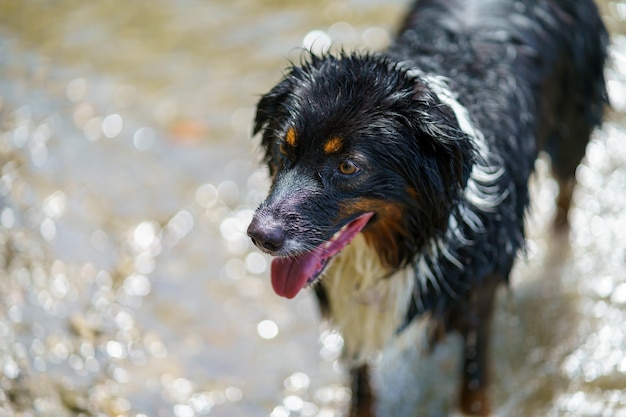
Bernese Mountain Dog Breed Information and Care Guide
DOGS & PUPPIESThis comprehensive guide delves into the joys and responsibilities of owning a Bernese Mountain Dog, a breed renowned for its gentle nature and striki...

Australian Cattle Dog Breed Information
DOGS & PUPPIESAustralian Cattle Dog Breed InformationThinking about welcoming an Australian Cattle Dog into your life? These spirited and intelligent dogs are trul...
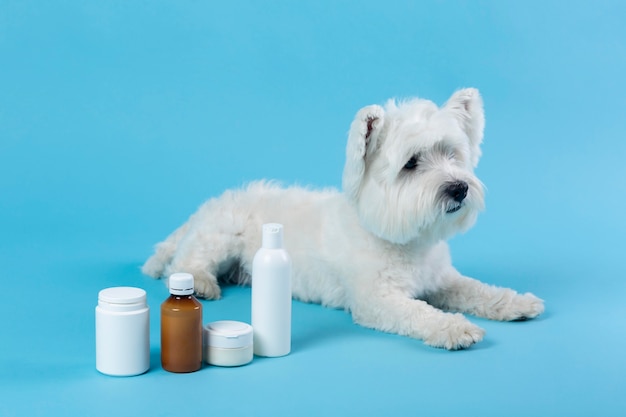
Hypoallergenic Dog Breeds A Comprehensive Guide
DOGS & PUPPIESWhat does "hypoallergenic" truly mean in terms of dog breeds, and are there varying degrees of hypoallergenicity?The term "hypoallergenic" is often ba...
Latest articles
-

Australian Cattle Dog Breed Information
DOGS & PUPPIESAustralian Cattle Dog Breed InformationThinking about welcoming an Australian Cattle Dog into your life? These spirited and intelligent dogs are trul...
-

Hypoallergenic Dog Breeds A Comprehensive Guide
DOGS & PUPPIESWhat does "hypoallergenic" truly mean in terms of dog breeds, and are there varying degrees of hypoallergenicity?The term "hypoallergenic" is often ba...
-

Newfoundland Dog Breed Information
DOGS & PUPPIESNewfoundland Dog Breed Information: A Comprehensive GuideThinking about welcoming a Newfoundland into your life? These magnificent dogs are known for...
-

Bernese Mountain Dog Breed Information and Care Guide
DOGS & PUPPIESThis comprehensive guide delves into the joys and responsibilities of owning a Bernese Mountain Dog, a breed renowned for its gentle nature and striki...
